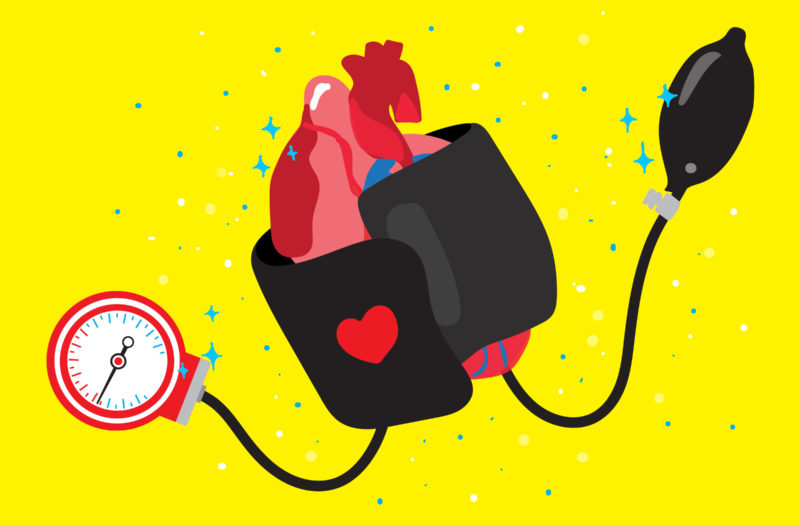Learn more about our FREE COVID-19 Patient Support Program for chronic illness patients and their loved ones.
People who have high blood pressure and contract COVID-19 seem to have a higher risk of developing serious complications. While hypertension itself could be to blame, it’s also possible that some of the drugs used to treat the condition are what’s making these patients more susceptible.
So, should you stop taking these high blood pressure medications preemptively during the coronavirus pandemic? The American College of Cardiology, American Heart Association, and Heart Failure Society of America say to stick with them, as do cardiologists from Brigham and Women’s Hospital who authored a special report published in the New England Journal of Medicine.
The reason some people have speculated that certain blood pressure medications might be risky in light of COVID-19 is that two popular classes of these drugs — called ACE inhibitors and angiotensin receptor blockers (ARBs) — might increase the number of receptors on ACE2 enzymes in the heart. COVID-19 seems to enter cells by attaching to these very same receptors.
While that could potentially put people taking these drugs at risk for heart complications if they were to develop COVID-19, experts say there is far from enough evidence at this time. For starters, the theory that these medications change ACE2 activity in the heart has only been demonstrated in animal models.
ACE inhibitor drugs include Accupril (quinapril), Lotensin (benazepril), and Monopril (fosinopril), among many others. Examples of ARBs include Cozaar (losartan), Diovan (valsartan), and Micardis (telmisartan).
“Currently there are no experimental or clinical data demonstrating beneficial or adverse outcomes with background use of ACE inhibitors, ARBs, or other [similar medications] in COVID-19 or among COVID-19 patients with a history of cardiovascular disease treated with such agents,” the American College of Cardiology, American Heart Association, and Heart Failure Society of America said in a joint statement. “The HFSA, ACC, and AHA recommend continuation of [these drugs] for those patients who are currently prescribed such agents for indications for which these agents are known to be beneficial, such as heart failure, hypertension, or ischemic heart disease.”
Brigham and Women’s cardiologist Muthiah Vaduganathan, MD, MPH and colleagues, writing in the New England Journal of Medicine, echoed this stance.
“Abrupt withdrawal of [ACE inhibitors or ARBs] in high-risk patients, including those who have heart failure or have had myocardial infarction, may result in clinical instability and adverse health outcomes,” they wrote. “Until further data are available, we think that [these drugs] should be continued in patients in otherwise stable condition who are at risk for, being evaluated for, or with COVID-19.”
Get Free Coronavirus Support for Chronic Illness Patients
Join the Global Healthy Living Foundation’s free COVID-19 Support Program for chronic illness patients and their families. We will be providing updated information, community support, and other resources tailored specifically to your health and safety. Join now.
American College of Cardiology: “HFSA/ACC/AHA Statement Addresses Concerns Re: Using RAAS Antagonists in COVID-19.” March 17, 2020. https://www.acc.org/latest-in-cardiology/articles/2020/03/17/08/59/hfsa-acc-aha-statement-addresses-concerns-re-using-raas-antagonists-in-covid-19.
Phend, C. Don’t Stop ACE, ARB Drugs Over COVID-19 Concern, Groups Urge. Medpage Today. April 6, 2020. https://www.medpagetoday.com/infectiousdisease/covid19/85817.
Vaduganathan M, et al. Renin–Angiotensin–Aldosterone System Inhibitors in Patients with Covid-19. New England Journal of Medicine. March 30, 2020. doi: http://dx.doi.org/10.1056/NEJMsr2005760.






